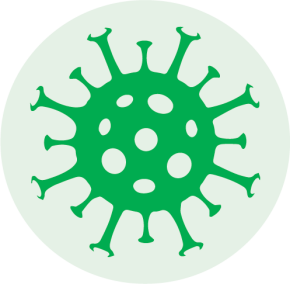

EDCTP portfolio: Emerging diseases
index


The ImmunoCoV project aims to validate tests for COVID-19 antibodies and generate a detailed picture of antibody responses and their link to symptoms and control of viral replication.
Mapping antibody responses to COVID-19

Although it is not certain, SARS-CoV-2 infection is likely to lead to the production of antibodies that protect against re-infection. Identification of people with SARS-CoV-2 antibodies could therefore support targeting of control measures to vulnerable, uninfected individuals.
However, a diverse range of antibodies are produced in response to SARS-CoV-2 infection, and there is a need to dissect immune responses to determine which are most important for controlling virus replication, preventing infections, or contributing to symptoms.
The challenge

The ImmunoCov project aims to validate antibody-based tests for COVID-19 in an African population, and also provide detailed data on the evolution of immune responses and their association with viral reproduction and symptoms.
Working with European industrial and academic collaborators, researchers from Kenya are evaluating a range of technologies for detecting different types of antibody recognising different SARS-CoV-2 proteins, as well as antibody-secreting cells. IgM antibodies, for example, may be markers of current infection while IgG antibodies could be indicators of past infection. The project will also assess methods for analysing different classes of T cell, which have the potential either to boost or to dampen down immune responses to the virus.
In the second strand of the project, researchers will track cohorts of symptomatic and asymptomatic individuals with confirmed SARS-CoV-2 infections. The project will use the validated tests to assess antibody and T-cell responses during the course of infection and recovery, and will also monitor clinical symptoms and levels of virus.
As antibody responses take time to appear, the project is also using RNA sequencing technologies to identify genes that are activated early in infection and are associated with the development of protective immunity, symptoms and viral load. This work is focusing on genetic makers of innate immune response – early, non-specific protective responses.
Finally, the project will also generate monoclonal antibodies based on antibodies from COVID-19 survivors with the strongest viral neutralisation abilities. These will have potential use as therapeutics.
The project

The ImmunoCov project will generate validated tools for use by researchers investigating COVID-19 immune responses in sub-Saharan Africa and by public health official aiming to control the epidemic. Antibody-based tests could be combined with PCR for diagnosis or for screening social contacts. Population surveys could underpin modelling and design of public health responses, including isolation of the vulnerable in high-risk areas, and allow long-term surveillance to be undertaken to detect flare ups.
Impact


“
test the safety and efficacy of this new formulation in young children
”
Bringing antiretroviral drugs to children

The CHAPAS trials have ensured that many more children with HIV have benefited
from life-saving antiretrovirals.
EDCTP portfolio: HIV & HIV-associated infections
The challenge
Although it is not certain, SARS-CoV-2 infection is likely to lead to the production of antibodies that protect against re-infection. Identification of people with SARS-CoV-2 antibodies could therefore support targeting of control measures to vulnerable, uninfected individuals.
However, a diverse range of antibodies are produced in response to SARS-CoV-2 infection, and there is a need to dissect immune responses to determine which are most important for controlling virus replication, preventing infections, or contributing to symptoms.

The ImmunoCov project aims to validate antibody-based tests for COVID-19 in an African population, and also provide detailed data on the evolution of immune responses and their association with viral reproduction and symptoms.
Working with European industrial and academic collaborators, researchers from Kenya are evaluating a range of technologies for detecting different types of antibody recognising different SARS-CoV-2 proteins, as well as antibody-secreting cells. IgM antibodies, for example, may be markers of current infection while IgG antibodies could be indicators of past infection. The project will also assess methods for analysing different classes of T cell, which have the potential either to boost or to dampen down immune responses to the virus.
In the second strand of the project, researchers will track cohorts of symptomatic and asymptomatic individuals with confirmed SARS-CoV-2 infections. The project will use the validated tests to assess antibody and T-cell responses during the course of infection and recovery, and will also monitor clinical symptoms and levels of virus.
As antibody responses take time to appear, the project is also using RNA sequencing technologies to identify genes that are activated early in infection and are associated with the development of protective immunity, symptoms and viral load. This work is focusing on genetic makers of innate immune response – early, non-specific protective responses.
Finally, the project will also generate monoclonal antibodies based on antibodies from COVID-19 survivors with the strongest viral neutralisation abilities. These will have potential use as therapeutics.
The project
The later CHAPAS-3 trial compared the efficacy and safety of three fixed-dose combinations including two without stavudine (found to have some long-term side effects in adults, leading to a recommendation that its use be discontinued in children). The trial the first of its kind in Africa studied nearly 500 children at four sites in two African countries.
The ImmunoCov project will generate validated tools for use by researchers investigating COVID-19 immune responses in sub-Saharan Africa and by public health official aiming to control the epidemic. Antibody-based tests could be combined with PCR for diagnosis or for screening social contacts. Population surveys could underpin modelling and design of public health responses, including isolation of the vulnerable in high-risk areas, and allow long-term surveillance to be undertaken to detect flare ups.
ratios forfixed-dose combinations and on appropriatedosage according to weight.
The CHAPAS-3 trial confirmed the effectiveness of fixed-dose combinations, providing further impetus to the rollout of antiretrovirals to children. Its evidence on abacavir informed the WHO recommendation of abacavir-containing combinations for first-line therapy in children. Trial data have also been used to support applications for regulatory approval for new scored efavirenz tablets.
Impact
L’homme RF et al. Nevirapine, stavudine and lamivudine pharmacokinetics in African children on paediatric fixed-dose combination tablets. AIDS. 2008;22(5):557–65.
Mulenga V et al. Abacavir, zidovudine, or stavudine as paediatric tablets for African HIVinfected children (CHAPAS-3): an open-label, parallel-group, randomised controlled trial. Lancet Infect Dis. 2016;16(2):169–79.
WHO. Guidelines on the use of antiretroviral drugs for treating and preventing HIV infection: recommendations for a public health approach. 2010.
WHO. Consolidated guidelines on the use of antiretroviral drugs
for treating and preventing
HIV infection: Recommendations for a public health approach
(second edition). 2016
Projects: Children with HIV in Africa Pharmacokinetics and Adherence of Simple Antiretroviral Regimens (CHAPAS): CHAPAS-1 and -3
Project lead: Professor Chifumbe Chintu, University Teaching Hospital, Zambia (CHAPAS-1); Dr Veronica Mulenga, University Teaching Hospital, Zambia (CHAPAS-3)
Target population(s): Children with HIV
Sample size: 71 (CHAPAS-1); 480 (CHAPAS-3)
Countries involved: Ireland, the Netherlands, the UK, the USA, Zambia (CHAPAS-1); Uganda, Zambia (CHAPAS-3)
Project duration: 2005–2009 (CHAPAS-1); 2010 –2011 (CHAPAS-3)
EDCTP funding: €1.2M (CHAPAS-1); €4.6M (CHAPAS-3)
Total project funding: €1.2M (CHAPAS-1); €5.0M